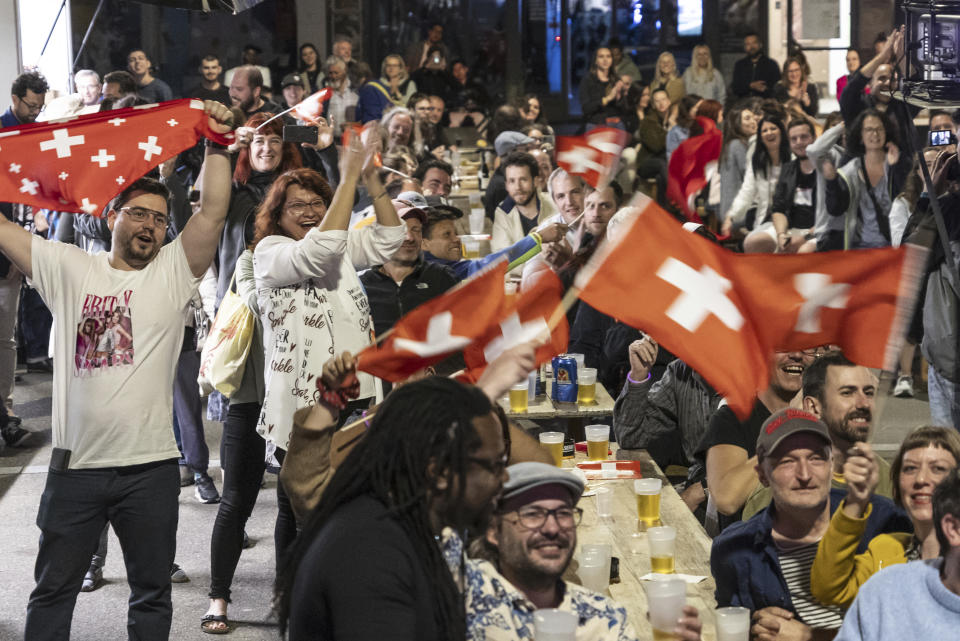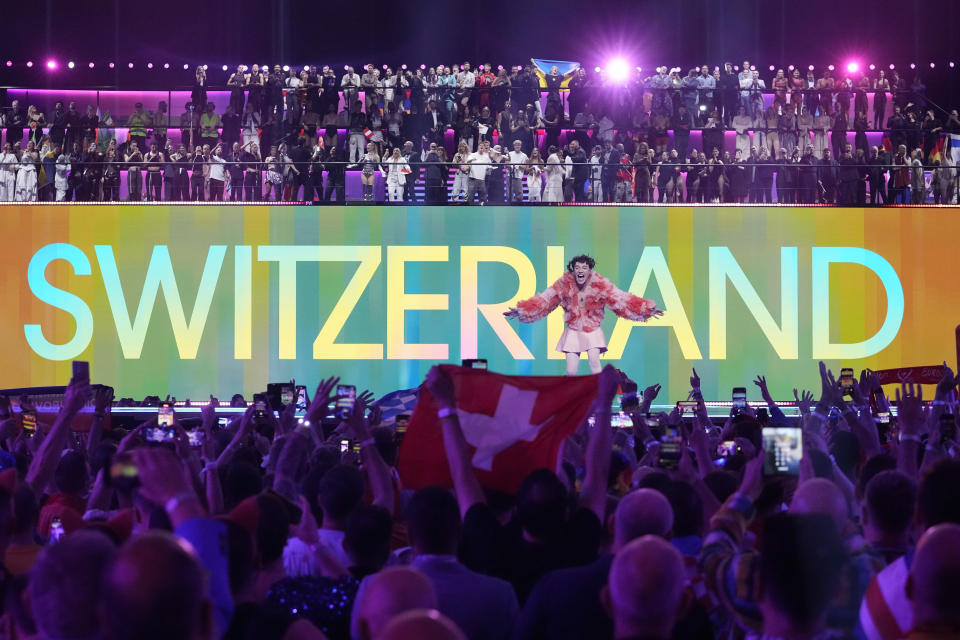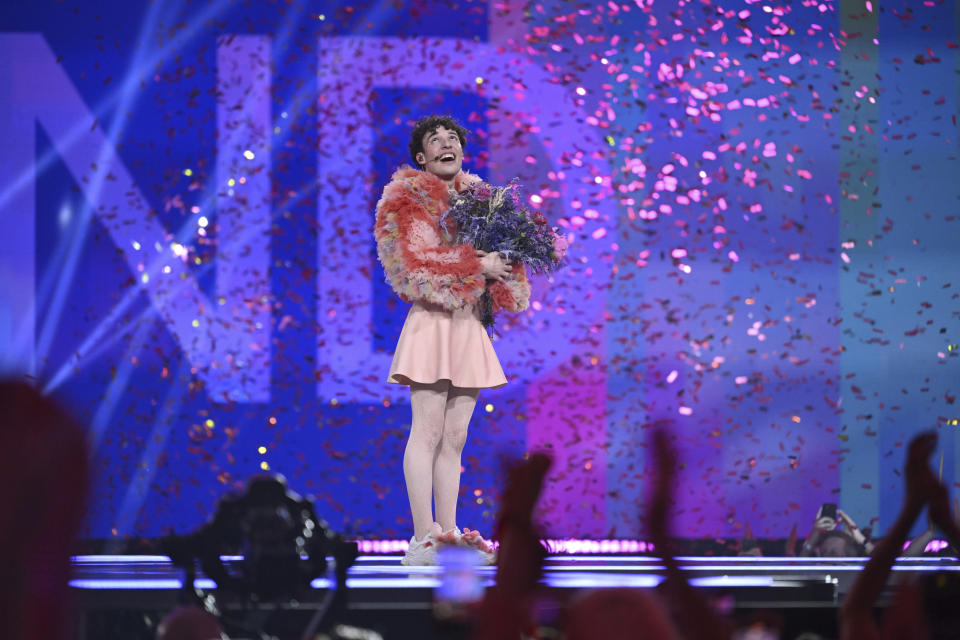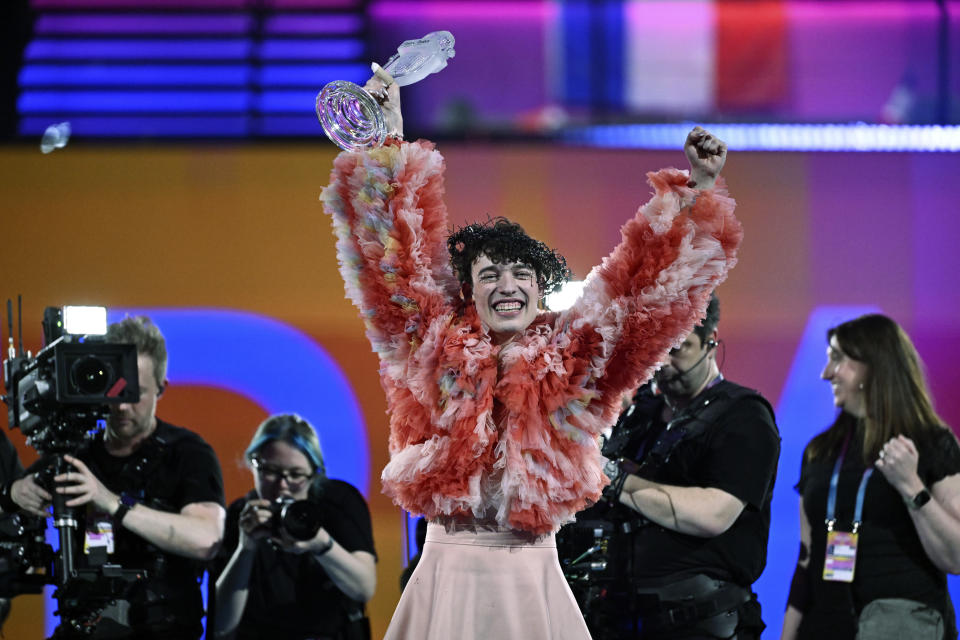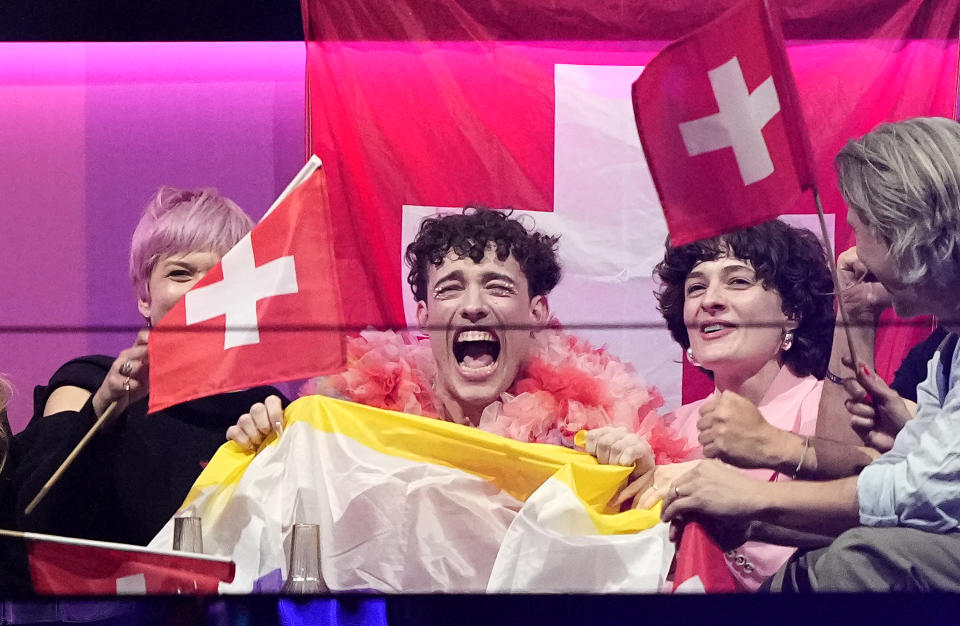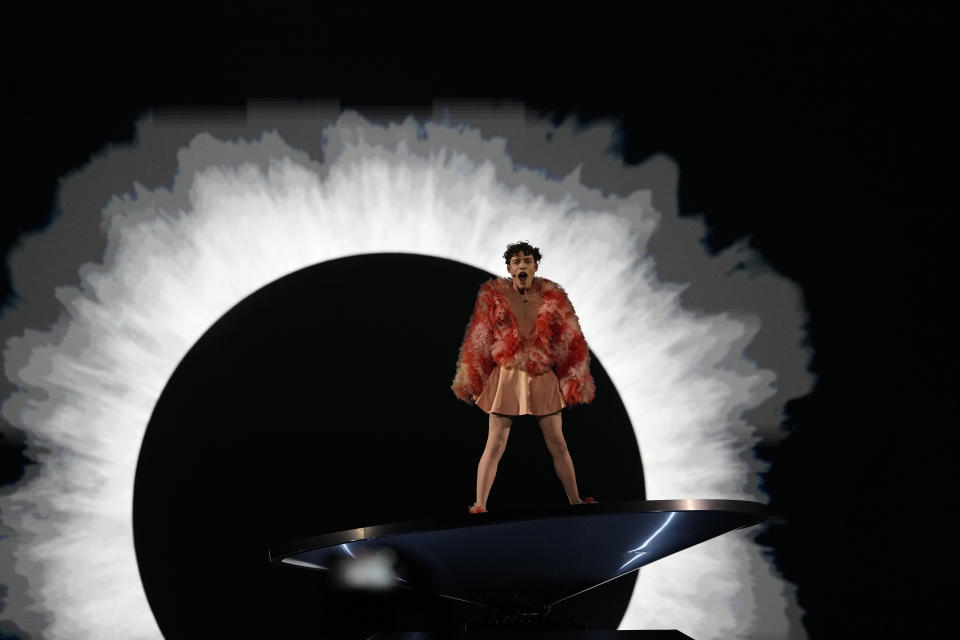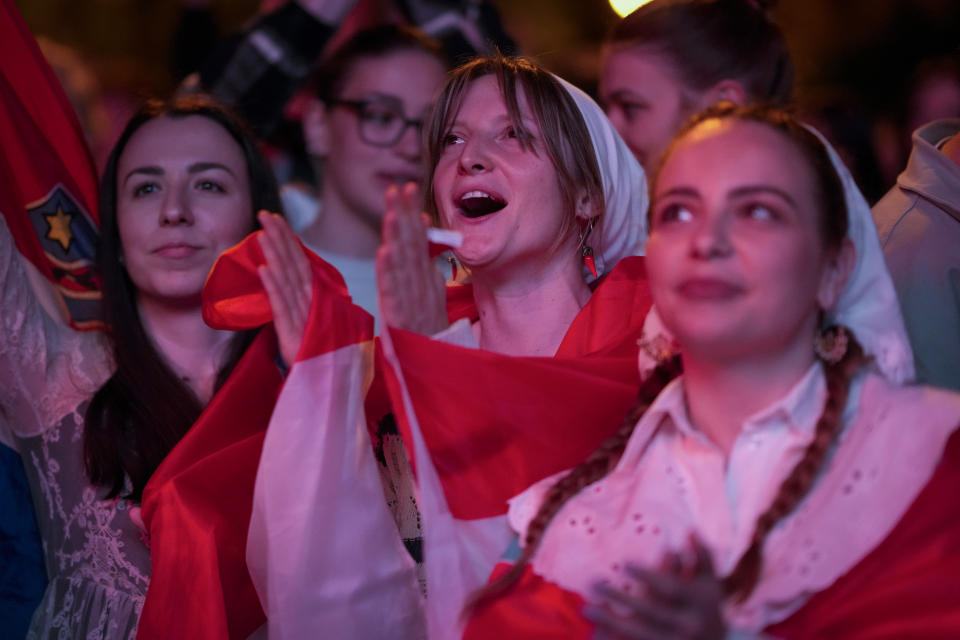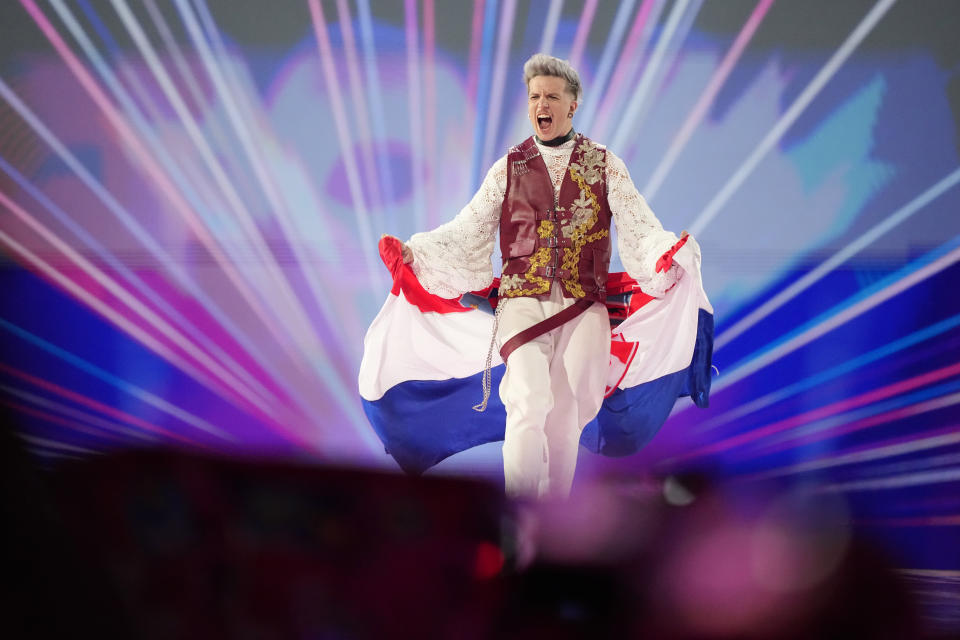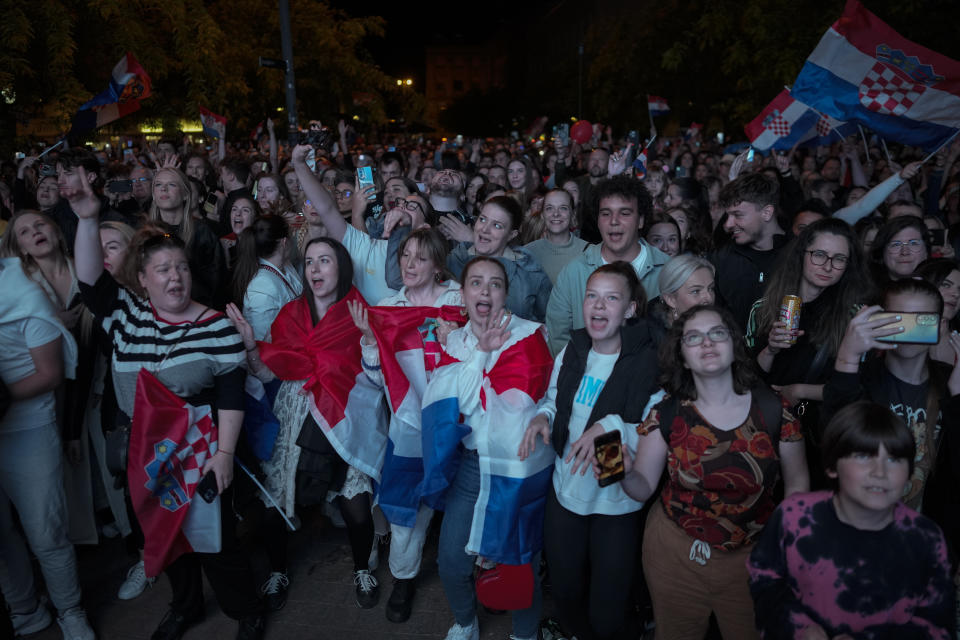Swiss fans get ready to welcome Eurovision winner Nemo back home
- Oops!Something went wrong.Please try again later.
BERLIN (AP) — Swiss Eurovision fans were getting ready Sunday to give a hero's welcome to singer Nemo, who won the 68th Eurovision Song Contest with “The Code,” an operatic pop-rap ode to the singer’s journey toward embracing a nongender identity.
The singer, who is Swiss but currently lives in Berlin, was to land in Zurich on Sunday night, national broadcaster SRF said.
Switzerland’s contestant beat Croatian rocker Baby Lasagna to the title by winning the most points from a combination of national juries and viewers around the world.
Nemo, 24, is the first nonbinary winner of the contest that has long been embraced as a safe haven by the LGBTQ community. Nemo is also the first Swiss winner since 1988, when Canadian chanteuse Celine Dion competed under the Swiss flag.
At a post-victory news conference, Nemo expressed pride in accepting the trophy for “people that are daring to be themselves and people that need to be heard and need to be understood. We need more compassion, we need more empathy.”
Nemo's hometown of Biel congratulated the newly-crowned star online and said the residents were ready to celebrate them.
“Congratulations! The city of Biel is extremely proud and says: Bravo and Merci Nemo for the fantastic song and performance and also for carrying the colors of Biel out into the world!,” the town said on its website. “Your city will celebrate and welcome you.”
Biel, with a population of around 60,000, is located around 100 kilometers (60 miles) southwest of Basel on Lake Biel. The town is bilingual, German and French, and is considered the watchmaking capital of Switzerland.
"Nemo creates and moves freely between classical, alternative and popular culture," the town's culture official, Glenda Gonzalez Bassi, said. “A wonderful example of the dynamic and inclusive culture that we are proud of in Biel.”
Nemo — full name Nemo Mettler — bested finalists from 24 other countries, who all performed in front of a live audience of thousands and an estimated 180 million viewers around the world. Each contestant had three minutes to meld catchy tunes and eye-popping spectacle into performances capable of winning the hearts of viewers. Musical styles ranged across rock, disco, techno and rap — sometimes a mashup of more than one.
Across Switzerland, people were already starting to think ahead to next year, when the country will host the next Eurovision contest. Traditionally the county of the winner hosts the music competition the following year.
The cities of Geneva, Basel and St. Gallen have already positioned themselves to compete as hosts for the next contest, SRF reported.
“It is a great artistic and touristic opportunity to show the world what Switzerland is all about, and it is now up to us to take up this challenge together,” Gilles Marchand, Director General of the SRG media company, an association of many different Swiss media organizations.
As for Berlin — their adopted, second hometown — Nemo told German news agency dpa before the Eurovision contest that “I love Berlin so much because it’s such a creative city that is constantly changing. It's a fun city."
In the Croatian capital of Zagreb, thousands gathered at the main square to welcome second-placed Baby Lasagna on his return home. Chanting “We love you,” the crowd cheered as the singer performed his “Rim Tim Tagi Dim” rollicking rock number that tackles the issue of young Croatians leaving the country in search of a better life.
Croats had hoped for a victory and Baby Lasagna burst into tears when he came on stage, saying he didn't expect such a big reception. “We did our best, I hope you are happy," he said.
Croatia’s Prime Minister Andrej Plenkovic was also in the crowd, saying, “We are proud to have had such a result, which is the best since Croatia became independent” from the former Yugoslavia in 1991.
—-
Associated Press writer Jovana Gec in Belgrade, Serbia contributed to this report.
